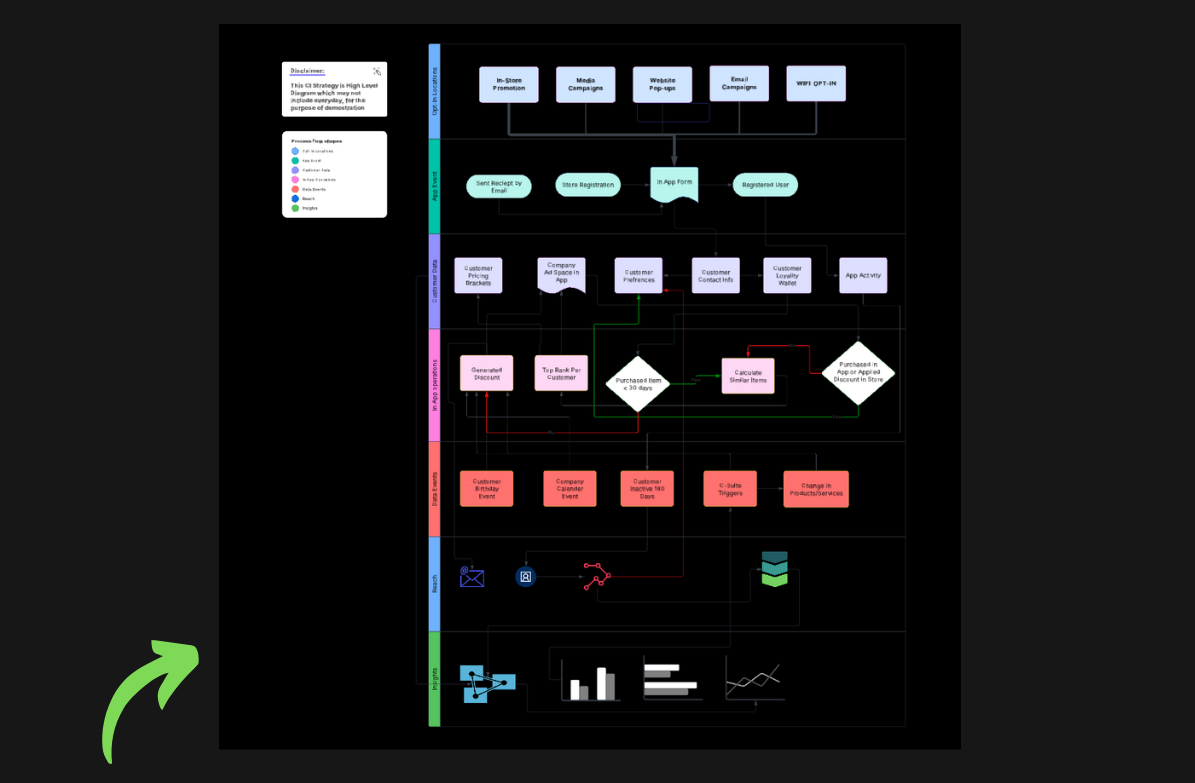Key Takeaways
- Customer retention management (CRM) focuses on keeping existing customers engaged and satisfied.
- Understanding the 3 R’s—Reach, Renew, and Refine—can help improve retention strategies.
- Strong customer relationships and excellent service are paramount for retention.
- An 80% retention rate indicates a stable customer base and potential for profitability.
- Implementing loyalty programs, personalized communication, and regular follow-ups are effective strategies.
- Retaining customers is generally more cost-effective than acquiring new ones.
- Customer feedback is crucial in enhancing products and services.
- Technology, such as CRM systems and data analytics, can streamline retention efforts.
- Key metrics like churn rate, customer lifetime value (CLV), and Net Promoter Score (NPS) should be monitored to gauge retention success.
What is the Meaning of Customer Retention Management?
Definition
Customer Retention Management (CRM) refers to the strategies and processes that businesses implement to keep existing customers engaged and satisfied, reducing the likelihood of them switching to competitors. This encompasses everything from customer service to loyalty program management, focusing primarily on enhancing customer experience.
Importance in Business
In today’s competitive market, retaining customers is as crucial, if not more so, than acquiring new ones. Businesses that prioritize customer retention often see higher profitability, as retaining existing customers tends to be less expensive than acquiring new ones. Furthermore, loyal customers are more likely to refer others, contributing to organic growth.
What are the 3 R’s of Customer Retention?
Reach
Reaching out to customers through various channels enables businesses to keep their brand top-of-mind. This can involve email marketing, social media engagement, or personalized messages designed to reconnect with former customers.
Renew
Renewing customer interest involves ongoing communication and engagement strategies that re-establish the relevance of your products or services to your customers. This might include re-engagement campaigns or exclusive offers.
Refine
Refining approaches based on customer feedback and behavior is critical. Analyzing what works and what doesn’t allows companies to tailor their strategies further, ensuring relevance and satisfaction.
How Do You Manage Customer Retention?
Identifying Customer Needs
Understanding what customers require, their pain points, and what they value in your offerings is essential for developing effective retention strategies. Surveys and direct communication can provide insights into these needs.
Building Relationships
Fostering strong relationships through personalized interactions helps customers feel valued. When customers see that a business understands their unique preferences, they are more likely to remain loyal.
Providing Excellent Customer Service
Prompt and positive interactions make a massive difference in customer retention. Businesses should train staff to handle inquiries and complaints efficiently to leave customers with a positive impression.
What Does an 80% Retention Rate Mean?
Definition of Retention Rate
Retention rate measures the percentage of customers who continue to do business with a company over a specific time frame. Calculating this metric helps businesses understand how well they maintain their customer base.
Implications of an 80% Retention Rate
An 80% retention rate indicates that a company effectively retains most of its customers, suggesting a strong customer loyalty and satisfaction level. It also implies the potential for long-term profitability, as retained customers are often more valuable over time.
What are Some Common Strategies for Improving Customer Retention?
Loyalty Programs
Implementing loyalty programs can incentivize repeat purchases and foster long-term engagement. Customers appreciate feeling rewarded for their loyalty.
Personalized Communication
Sending tailored messages or promotions based on customer preferences enhances connection and relevance, making customers feel recognized and appreciated.
Regular Follow-Ups
Consistent follow-ups can ensure customers feel valued after a purchase and provide opportunities for feedback. This practice helps maintain customer relationships and address potential issues proactively.
How Does Customer Retention Impact Profitability?
Cost-Effectiveness of Retaining Customers
According to various studies, it costs five times more to acquire a new customer than to retain an existing one. Investing in customer retention strategies can pay off significantly in the long run.
Long-Term Revenue Generation
Retained customers tend to spend more over time than new customers, contributing to stable revenue generation. The cumulative effect of loyal customers can greatly enhance a company’s financial standing.
What Role Does Customer Feedback Play in Retention Management?
Understanding Customer Satisfaction
Regularly gathering and analyzing customer feedback helps businesses understand satisfaction levels and identify areas for improvement. This insight is vital for enhancing overall customer experience.
Improving Products and Services Based on Feedback
Feedback serves as a tool for making informed decisions about product and service modifications, leading to a better fit for customer needs and increasing retention rates.
How Can Technology Aid in Customer Retention Efforts?
Customer Relationship Management (CRM) Systems
CRM systems help track customer interactions and data, providing insights necessary for effective customer engagement strategies. They enable personalized marketing and customer service efforts.
Data Analytics for Customer Insights
Leveraging data analytics can reveal trends in customer behavior, helping businesses to anticipate needs and tailor their offerings accordingly.
Automation Tools for Communication
Automation tools streamline communication processes, ensuring regular contact with customers while freeing up time for employees to focus on more complex tasks that require personal attention.
What Metrics Should Businesses Track to Measure Customer Retention Success?
Churn Rate
The churn rate indicates the percentage of customers who stop using a brand’s products over a specific period. Monitoring this metric helps identify issues that may be causing customers to leave.
Customer Lifetime Value (CLV)
CLV measures the total revenue a business can expect from a customer over the duration of their relationship. It’s a crucial metric for understanding the long-term value of retention efforts.
Net Promoter Score (NPS)
NPS assesses customer loyalty by asking how likely customers are to recommend a company’s services to others. A high NPS indicates strong customer loyalty and satisfaction.
For further insights and tools related to customer retention, consider exploring the best customer retention software, a retention ROI calculator, and strategies to increase customer retention.
Conclusion
Effective customer retention management is essential in building a successful and sustainable business. By understanding customer needs, fostering relationships, utilizing technology, and consistently measuring key metrics, organizations can significantly enhance their customer retention strategies and ultimately boost profitability.



